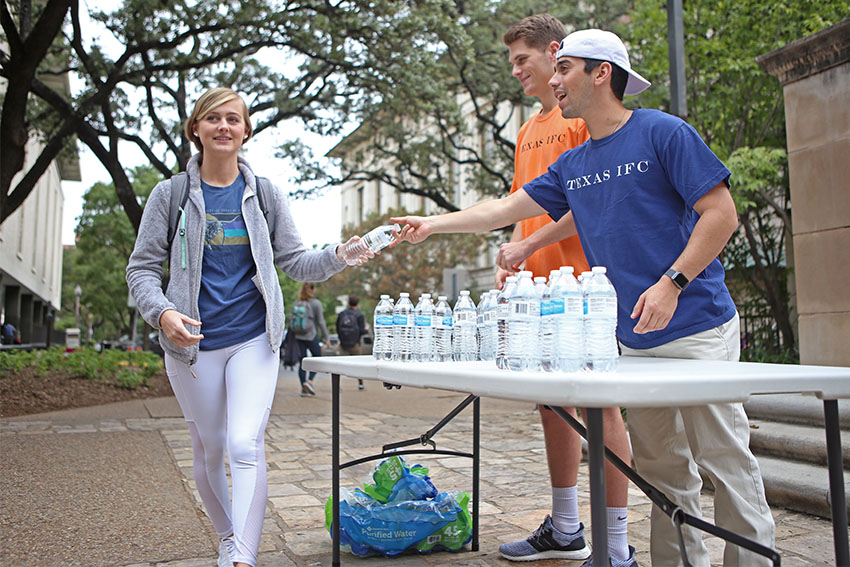The City of Austin issued a boil water notice Monday following recent flooding, telling residents to boil water before using it for drinking, cooking or making ice.
“The notice is being issued as the utility works to stabilize the water treatment system,” the notice said.
Boil notices usually only last 24 to 48 hours, but updates will be posted daily about the actions taken to treat the water and how long the advisory will last, the notice said. By the end of the day Monday, the boil water notice escalated and the City urgently called for residents to limit their personal water usage.
“Water reservoir levels are reaching minimal levels,” the notice said. “This is an emergency situation.”
Recent flooding caused high levels of silt to flow into the water supply lakes, making it difficult for water plants to produce enough treated water for Austin residents, according to the notice. As of publication, there have been no positive tests for bacteria in the water system. Austin water treatment plants can treat and dispense 105 million gallons of water per day at the moment, but the current consumer usage is about 120 million gallons, according to the notice. “All residents are asked to reduce their personal consumption by 15 to 20 percent,” the notice said.
Jimmy Johnson, assistant vice president for campus safety, emailed students advising them on how to handle the notice.
“If you live off campus, you should bring any water that you may need during the day with you,” Johnson said. “On-campus dining halls are open and providing bottled water to their customers.”
Residents are instructed to allow the water to come to a rolling boil for three minutes before cooling it, which will ensure that harmful bacteria and microbes are destroyed, according to the notice.
“Inadequately treated water may contain harmful bacteria, viruses and parasites, which can cause symptoms such as diarrhea, cramps, nausea, headaches, or other symptoms,” the notice said.
Johnson said building managers and Facilities Services are covering campus water fountains and students should conserve as much water as possible to help the city and the University manage their water supply.
“After learning from city officials about the notice this morning, the University immediately began developing contingency plans to provide bottled water at stations on campus,” Johnson said. “We will share more information about those plans once they are set.”
Erin Wells, associate director for facilities and instructional programming at UT RecSports, said if the University installs temporary water stations, Gregory Gym and the Recreational Sports Center would likely be stations. Wells said UT employees and the UT Police Department would be involved in distributing water.
“I’m pretty sure those decisions are going to be made by the end of the day,” Wells said. “They’re still working on getting it here and what distribution would look like.”
As of Monday afternoon, Wells said Gregory Gym and RecSports did not receive additional water. Morgan Flowers, a radio-television-film sophomore, said he woke up Monday morning to the intercom in Jester West telling residents their water must be boiled or bought bottled. “As soon as I heard the announcement, I went to buy water in the market down in Jester,” said Morgan, who normally uses the water fountain outside of his room.
The San Antonio Water System sent 5,125 gallons of water to Austin to help with any water shortages.
“We think an important part of our work is to help folks that are in need,” SAWS spokeswoman Anne Hayden said. “We are happy to help our neighbors in Austin.”





















